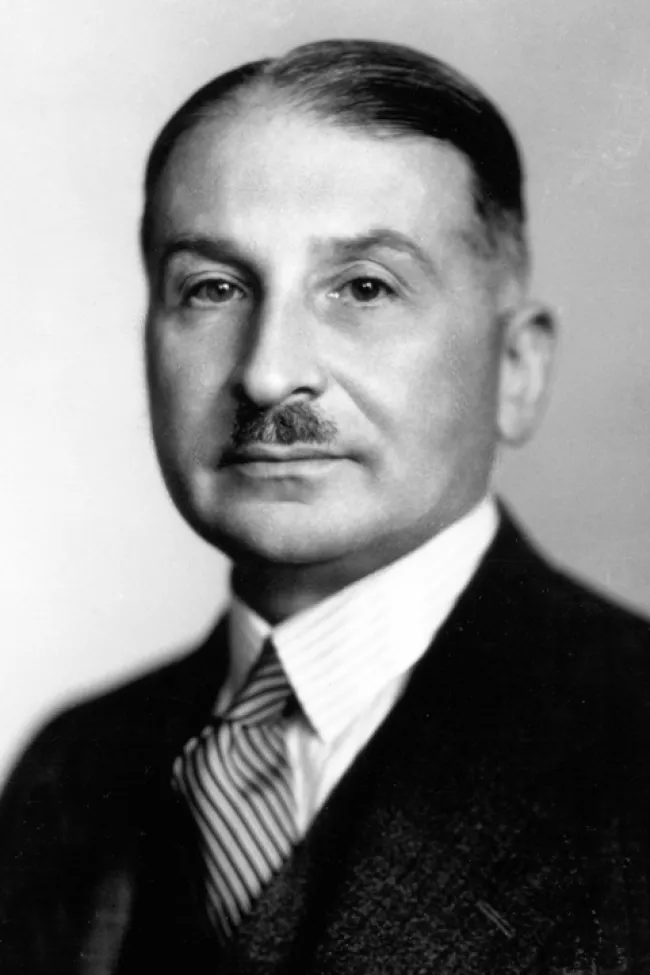- Downloads:
- View HTML Version
[In 1931, the International Rotary held its annual convention in Vienna, Austria. For the meeting, Rotary issued a tabloid. It contained information about Rotary’s agenda for that convention, its international activities, and articles by Rotary members in Vienna. One of these short articles was “by Rotarian Dr. Ludwig Mises, professor at the University of Vienna.”]
“Service” is the device of the Rotarian.
In no sphere of human activity can this principle find an application on a larger scale than in economics. Human society being based on a division of labor, the work of individuals is of necessity piecework only. Every human being performs one task only and his activity is limited to a narrow field. Unaided by the work of others he cannot exist.
The manner in which every individual arranges his life presupposes the activity of other members of society in occupations which harmoniously complement his own work and vice versa. If we consciously specialize in one kind of activity, we can do so only because we count upon other individuals being ready to serve us just as we are prepared to serve them. It is here that the great principle of solidarity, which govern society, comes into play.
The principle of solidarity, however, does not lose its force at the frontiers of a country. Economic solidarity does not unite compatriots only, but it ties together all peoples. The European feeds on, and clothes himself in, the products which America, Asia, Africa, and Australia supply, giving in exchange the fruits of his industrial efforts. The present standard of life of all nations is based on the enormous increase of productivity of human work which has been made possible only by an international division of labor.
Interdependence of Countries
These are propositions so simple and self-evident that it seems hardly necessary to mention them. The fact, however, that commercial hostility still exists between nations proves that, in spite of the axiomatic nature of this truth, it is not quite superfluous to restate it.
The spirit has not yet died out which regards the prosperity of other nations as a danger to one’s own country, though experience teaches us every day that in view of the close economic interdependence of all countries every single state has a large interest in the prosperity of other states.
Any decline of business activity in America makes itself felt in an extraordinarily acute manner all over Europe. When business flourishes in the United States, more European goods are imported there and a larger number of Americans visit Europe with the consequence that business on the continent is brisk. When there is a depression in the United States, there is distress in Europe.
To recognize the need for solidarity in economic life and to affirm it by conscious action is service in the sense in which a Rotarian uses the word.

No content found

Ludwig von Mises was the acknowledged leader of the Austrian school of economic thought, a prodigious originator in economic theory, and a prolific author. Mises’s writings and lectures encompassed economic theory, history, epistemology, government, and political philosophy. His contributions to economic theory include important clarifications on the quantity theory of money, the theory of the trade cycle, the integration of monetary theory with economic theory in general, and a demonstration that socialism must fail because it cannot solve the problem of economic calculation. Mises was the first scholar to recognize that economics is part of a larger science in human action, a science that he called praxeology.
Having warned of the rise of national socialism and having fled the German army‘s march into Austria, Ludwig von Mises was in an excellent position to analyze Nazi economic doctrine.
Having warned of the rise of national socialism and having fled the German army's march into Austria, Ludwig von Mises was in an excellent position to analyze Nazi economic doctrine.
The most popular method of deprecating capitalism is to make it responsible for every condition which is considered unsatisfactory.

